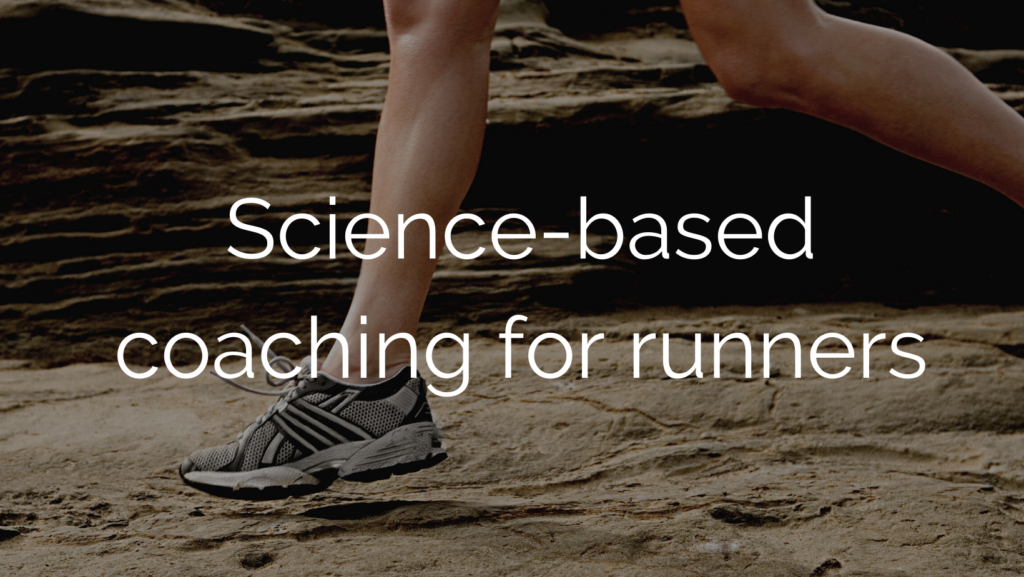Why Hire a Running Coach?
A good running coach is a powerful tool. Whether or not you should hire a running coach is always a personal decision. Money doesn’t grow on trees so taking the time to explore the benefits of hiring a running coach is worthwhile.
Benefits of hiring a running coach
When you hire a running coach, you should be hiring an expert. You should expect your coach to be passionate about running. He/she should love to geek out on all things running including training theory, fueling and hydration, running form, heart rate zones, pacing, gear, and much more. Your running coach should be able to guide your training so you get the most out of your precious training time.
One of the most common mistakes made by runners, both new and experienced, is running at too hard of an intensity all of the time. Runners like to work hard, so of course they find it satisfying to work hard all the time. That makes sense, right? Working hard all the time must be better than working hard just some of the time! Wrongo, Mooseface! (as my first course director at Outward Bound liked to say). Working hard all the time will just lead to overtraining, injury, and burnout!
A good running coach will know how to construct a training plan that includes low-intensity, moderate-intensity, and high-intensity training in the right amounts, and at the right times, so you can experience the training gains you are seeking.
Avoiding injury
Did you know that 50% of runners get injured every year? Running is a high-impact sport. It is one of the few sports where new participants commonly expect to just dive in without working on technique or form first. We say to ourselves, “No one taught me how to walk, why should someone teach me how to run?” Think about it though, you wouldn’t jump into the pool without learning how to swim first, or put on skis for the first time and expect to bomb a black diamond.
At best, poor running form will make for inefficient running (i.e. slow running). At worst, poor running form will lead to injury. A good running coach, whether virtual or in person, can analyze your running form and provide cues and exercises to help you improve your form.
The Expert vs. The Influencer
Social media influencers are full of ideas about what you should and shouldn’t eat these days. Unfortunately, very few of them actually know what they are talking about. Either they are speaking from an N of 1 (meaning all their ‘expert’ advice is based solely on the experience of one person – themselves) or they are simply peddling myths and falsehoods. A good running coach will base their guidance on science not social media.

Have you heard of the infamous ‘bonk’, or ‘hitting the wall’? These are real experiences caused by not eating enough. Our bodies store about 90-120 minutes worth of glycogen (the storage from of carbohydrates) in our liver and muscles. When that energy source is used up, we have to rely on fat for fuel. Luckily our bodies know how to do that but turning fat into energy requires more oxygen than turning carbohydrates into energy. So the ‘bonk’ is our body demanding that we slow down in order to provide the necessary oxygen for fat metabolism.

A good running coach will help you come up wth a fueling and hydration plan so you can finish your half marathon, marathon, or ultramarathon without the dreaded ‘bonk’. The fueling and hydration plan that you and your coach put together will also help you avoid GI upset – the most common reason for a DNF in ultrarunning.
Your cheerleader, your running coach
A good running coach will do all of these things, as well as provide structure and accountability while also being your biggest cheerleader. Your coach wants you to succeed, they want you to reach your goal. Their job is to guide you through the fog, cairn by cairn, all the way to the mountain top.

Your coach is there to adjust your training plan when life throws you a curve ball, whether it be injury, or illness, a demanding boss, or a new baby. Your coach is there to kick you out the door on some days and demand you stay in bed on others. Your coach is there to answer questions and be the expert but also to point you to other resources when necessary.
How do I find a running coach?
Your next question may be, “how do I find a running coach?” It is worth asking for recommendations from other runners you know or from other runners with similar running and racing goals as yours. You can search the internet, ask at local run shops, or seek out recommendations from running sources you trust like local running clubs, events, or race directors.
Online or in-person?
Whether you are looking for a local coach who can provide in-person coaching or an online coach who coaches virtually is a personal choice. Both methods are effective. Some runners prefer to hire a coach who is local to their state or region or is at least familiar with their region and goal race.
Other runners are more concerned with feeling a quality connection with their coach. In order to get the most from your coach/athlete relationship, it is important that you feel comfortable with your coach. You need to be able to talk about your body and bodily functions – the good, the bad, and the ugly. You need to feel like they understand you and the place you are in life. Most coaches will offer a free discovery call in order to explore the coach/athlete relationship so you can both decide if you are a ‘good fit’.
Next steps…
You will not find a good running coach if you fail to reach out though. Rest assured that your race goals are good enough, your running practice is worthwhile, and you deserve a good running coach. Go ahead, reach out!
Contact running coach Samantha Langlois here.
